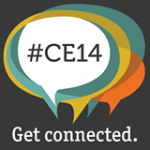‘First Chapter Fridays’ have been a fun concept catching lots of attention on social media and Pinterest boards for ELA teachers the last couple years.
If you’re unfamiliar with this craze, it is the idea of sharing just the first chapter of a book with your class once a week. The idea is to take a curriculum break, expose students to more options, and hopefully get them excited to read more independently after a bit of weekly nudging.
The thing I liked about this movement was not necessarily the face-value premise. Rather, I liked that teachers were embracing taking some time back for things they knew to be valuable. In this case, it was finding a novel approach to getting students to read more. But, what sticks out to me is the ownership the teachers feel in this instance.
Teachers are not throwing out the cannon, nor eliminating standards – they are just adding more on top of the workload they already manage.
This has me wondering. What else, can we take just a few minutes to tend to every week? How else can we, perhaps in tandem with curriculum, add sparks of curiosity into our time with students?
This idea, combined with a recent event in my classroom, has me prepping a new segment in my classroom. Let me explain my back story here:
I am in the midst of a unit in my Journalism classes concerning evaluating media credibility. One specific aspect I wanted to cover was how news outlets operate in live, breaking news situations. There was a particularly interesting break down of the live-coverage from Oklahoma City Bombing where basically national and local media all operated under false assumptions and spread misinformation at an alarming rate.
The problem, however, was the my students, born in the late aughts, didn’t know what The Oklahoma City Bombing was. While I know this is just 1 of an unlimited list of things students never learn about in school, I was taken aback that truly only two of my 75 journalism students had ever even heard about the event.
There has been a lot of conversations concerning what other topics have been omitted from history book classes lately. Often, we find the omissions correlate with events that matter to minorities. I won’t try to build a table of all of those missing lessons for this blog post, but I may build that very table myself for future lesson plans.
I don’t have a clever name for it yet – but I do know I can spare a few minutes every week to teach kids about things in the world I know aren’t in their other curricula. I can share a video or article or point them to a website.
I can use this in journalism for sure, in a myriad of ways that would compliment my existing plans. But also, I am confident I could add this into a weekly activity in my English class as well.
Have you taken ownership of your planning in a way like this? Do you revel in sharing things outside your prescribed standards? Share below some creative ways you have injected some extra content into your classroom!









Comments 1
I just started Anthem by Noah Hawley. In the prologue he talks about being 53 and compares big events that happened in the 53 years before he was born to the 53 years after and how they all seem like ancient history. That’s what your Oklahoma bombing comment made me think.
In math, I try to think of a “case history” for each of out topics – something like a building collapse in which a lot of lives were impacted and which can more broadly be understood through a math lens.